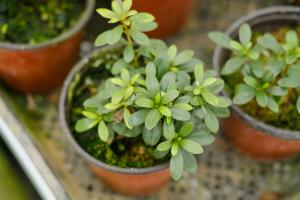Do You Water Bulbs After Planting in the Fall?
Planting bulbs in the fall is a common practice for gardeners looking to enjoy vibrant blooms come spring. However, many gardeners may be unsure about how to care for their bulbs after planting. The question of whether to water bulbs after planting in the fall is particularly important to consider. In this article, we will explore this question and provide tips for properly watering your bulbs after planting in the fall.
Why Watering After Planting is Important
After planting bulbs, many gardeners may be tempted to immediately water them. However, this is not always necessary as some bulbs may not require watering until they have started to grow. Nonetheless, watering after planting bulbs can be important to promote optimal growth and health. Watering helps to ensure that the soil surrounding the bulbs is moist, which can help the bulbs establish themselves and grow strong roots. This is particularly important in the fall when soil can quickly dry out due to cooler temperatures and lower levels of precipitation.
When to Water After Planting Bulbs
The timing of when to water after planting bulbs can depend on several factors, including the type of bulbs planted and the weather conditions in your area. In general, it is recommended to water bulbs immediately after planting to help them establish themselves in the soil. However, if you live in an area with adequate levels of precipitation, you may not need to water your bulbs until they start to grow in the spring. On the other hand, if your area is experiencing a dry spell, it may be necessary to water your bulbs more frequently.
Tips for Watering Bulbs After Planting
When watering bulbs after planting, there are a few key tips to keep in mind. First, be sure to use a gentle stream of water to avoid disturbing the soil around the bulbs. It is also important to water deeply to ensure that the water reaches the roots of the bulbs. Additionally, avoid watering bulbs too frequently as this can lead to over-watering, which can be harmful to bulb growth. Finally, be sure to monitor the weather conditions in your area as this can impact how frequently you need to water your bulbs.
Conclusion
Planting bulbs in the fall can be a rewarding experience for gardeners. However, proper care is important to ensure that your bulbs grow and thrive. By following these tips for watering your bulbs after planting in the fall, you can help your bulbs establish themselves and grow strong roots. Remember to monitor the weather conditions in your area and adjust your watering schedule accordingly to promote optimal growth and health for your bulbs.

 how many times do yo...
how many times do yo... how many planted tre...
how many planted tre... how many pine trees ...
how many pine trees ... how many pecan trees...
how many pecan trees... how many plants comp...
how many plants comp... how many plants can ...
how many plants can ... how many plants and ...
how many plants and ... how many pepper plan...
how many pepper plan...































